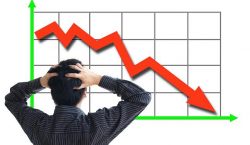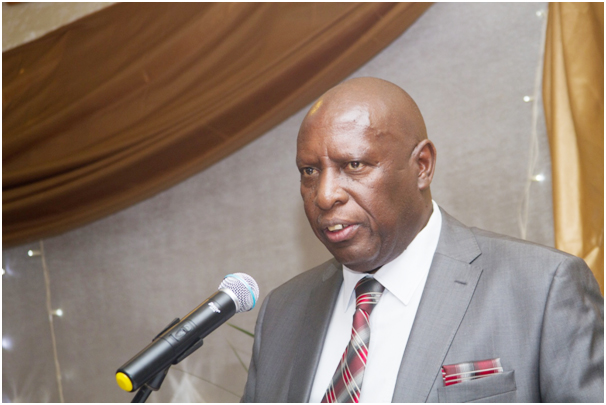


 INTERNATIONAL oil firms have established a cartel which is conniving on retail fuel prices on the local market, preventing a cut in prices industry and other interest groups say could have significantly helped heal the frail economy. According to investigations by the Financial Gazette, at least four global oil players have established a significant presence on the domestic market, and are colluding to keep prices high despite global oil prices weakening.The four global players have direct control or influence over at least 350 retail sites across the country. This has allowed them to dictate prices and undermine competition. Zimbabwe has about 30 licensed fuel importers and about 400 forecourt retailers. This implies that the four players control just over 88 percent of the market. This collusion by the big fuel movers has enabled them to exploit the market unfairly to achieve super profits at the expense of the consumers.
INTERNATIONAL oil firms have established a cartel which is conniving on retail fuel prices on the local market, preventing a cut in prices industry and other interest groups say could have significantly helped heal the frail economy. According to investigations by the Financial Gazette, at least four global oil players have established a significant presence on the domestic market, and are colluding to keep prices high despite global oil prices weakening.The four global players have direct control or influence over at least 350 retail sites across the country. This has allowed them to dictate prices and undermine competition. Zimbabwe has about 30 licensed fuel importers and about 400 forecourt retailers. This implies that the four players control just over 88 percent of the market. This collusion by the big fuel movers has enabled them to exploit the market unfairly to achieve super profits at the expense of the consumers.
Government liberalised the fuel sector in 2008, allowing individuals and private companies with free funds to source petrol and diesel offshore for sale on the local market. Although initially the market was dominated by smaller players who thrived under the chaotic and often corrupt conditions, the four global players are said to have later taken over control of the sector through acquisitions. While neighbouring countries such as South Africa, Zambia and Namibia have significantly cut fuel prices in line with falling international prices, this has not been the case in Zimbabwe, which imports all its petroleum products, as local fuel traders maintained punitive fuel prices despite an almost 50 percent slump in international prices since June last year.
Comparatively, petrol and diesel are priced at US$0,96 per litre and US$0,90 per litre respectively in South Africa, while in Namibia, petrol and diesel retail at US$0,96 per litre and US$0,92 per litre respectively and at US$1,18 per litre for petrol and US$1,02 per litre for diesel in Zambia. However, the pump price of petrol in Zimbabwe is at most retail outlets is at around US$1,44 per litre. Petrol prices were retailing at around US$1,50 per litre before government issued a directive that fuel companies should lower prices. Diesel prices are currently pegged at around US$1,32 per litre. The situation has, however, not been helped by government, which, after demanding that petroleum companies reduce prices in line with international trends, went on to increase duty on fuel.
This has consequently taken the high moral ground from government, which is now in a fix and is no longer able to act against the petroleum firms. Government had initially given a directive that petroleum firms slash prices to a maximum allowable of US$1,20 per litre for diesel and US$1,32 per litre for petrol, before becoming silent after its surprise hike of duty on fuel by between 28 percent and 33 percent. The customs duty on leaded petrol was increased from US$0,35 per litre to US$0,45 per litre, unleaded petrol from US$0,35 per litre to US$0,45 per litre while diesel was increased from US$0,30 per litre to US$0,40 per litre.
According to investigations, some small players were selling fuel at much lower prices compared to the bigger players who enjoy economies of scale. The small players — who move a tiny fraction of what the bigger players handle — were selling petrol for as much as US$1,37 per litre for petrol and US$1,25 per litre for diesel. This, market watchers said, indicates that the big players could sell their products at much lower prices without compromising profitability. The price of crude oil has been on freefall since June last year when it was around US$118 per barrel to US$70 per barrel in December.
The freight on board (FOB) prices at the port of Beira stood at US$0,57 and US$0,52 per litre as at end of December. In June 2014, the FOB prices at Beira were US$0,88 cents per litre for diesel and US$0,86 cents per litre for petrol. Industry insiders agreed that local petrol prices should be cheaper considering that the product is blended with ethanol. Major local fuel traders had not adjusted their prices to reflect the fall in prices on the international market. Because of the petroleum margins in the business, more foreign companies are increasingly expressing interest in the local petroleum sector, with global commodities giant, Trafigura, and its rival Glencore, having established a significant market presence in the country.
Analysts are worried about the emergence of the cartel whose hands are tightly wrapped around the petroleum sector.
Minister of Energy and Power Development, Samuel Undenge, had initially angrily lambasted the fuel cartel but recoiled after Finance Minister Patrick Chinamasa proceeded to increase duty on petroleum products, suggesting that he may have been censured by Cabinet. In an attempt to instil normalcy in the fuel sector, government has amended its Petroleum (Fuel Pricing) regulations but the changes have been described by experts as too little too late. According to legal watchdog, Veritas, the only comprehensible part of the new Statutory Instrument (SI) is the provision penalising contraventions of the principal regulations and the withholding of petroleum products for speculative purposes for future resale, imposing a fine of up to US$600 or imprisonment for up to five years or both.
“The remainder of the SI suggests an intention to adjust the Zimbabwe Energy Regulatory Authority (ZERA) pricing structure, but is obviously incomplete — terms are defined but not used, and a new Second Schedule is set out, but with no explanation for the reader of what it really means or how it is to be applied. So the Minister of Energy and Power Development and ZERA, as the joint authors of the SI, need to try again,” remarked Veritas in their electronic bulletin released yesterday.
newsdesk@fingaz.co.zw